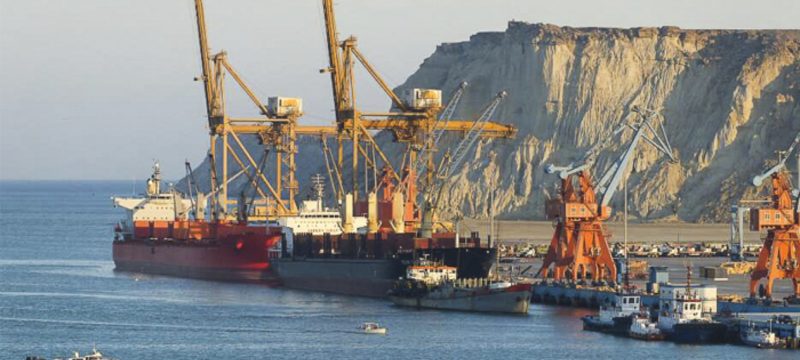The Pakistani government is grappling with several challenges as it strives to operationalize Gwadar Port, despite offering attractive incentives to its Chinese operator. A recent report submitted to the prime minister highlights key obstacles such as the reluctance of international insurance companies due to security concerns, high operational costs, and inadequate road and rail infrastructure.
Although Gwadar Port holds immense geostrategic value, it has struggled to secure a notable share in global merchant shipping traffic. High port costs make it less competitive than regional ports like Jebel Ali, and the local economy fails to generate sufficient cargo volumes. Additionally, elevated insurance premiums deter international shipping lines from utilizing the port, and the lack of stable cargo flows and agreements with major shipping lines further hampers economic activities.
Also Read: New Gwadar International Airport to Begin Operations on January 20
The report identified the need for dedicated feeder ships to facilitate transshipment between Gwadar and Persian Gulf ports. Currency exchange losses have also discouraged investors, while certain finished products remain restricted from export under the 2022 Export Policy Order. Furthermore, China’s Xinjiang province relies more on road and rail networks than ports, depriving Gwadar of potential business opportunities.
Industrial relocation to the Gwadar Free Zone has been minimal due to high production costs and harsh environmental conditions, which discourage foreign investment. Restrictions on the movement of foreign workers, including Chinese personnel, further complicate operations, while inefficient border terminals at Khunjerab, Torkham, and Chaman create bottlenecks for transit trade.
Despite these challenges, the report outlines several opportunities for Gwadar Port. These include a proposed salt project at Khor Kalmat, potential joint ventures for aquaculture, the establishment of an automobile park, and the development of a bulk storage facility. Engaging Chinese fishing trawler companies to establish a fish processing industry in the Gwadar Free Zone also holds promise.
To address these issues, the government has approved a series of short, medium, and long-term measures. These include organizing an international conference in Islamabad to promote Gwadar Port, developing a marketing strategy, enhancing diplomatic outreach to Central Asian states, and engaging with Afghan transit traders. The government has also called for feasibility studies on vehicle transshipment and the completion of critical infrastructure projects like M-8, ML-4, and the Eastbay Expressway.
The government plans to encourage Chinese companies to utilize Gwadar for transshipment and establish ship repair facilities. It also aims to promote technology adoption for cargo handling and designate Gwadar as a dedicated mining port for Balochistan. Further measures include creating an exclusive residential area for foreign workers and establishing a shipyard, along with implementing the Gwadar Master Plan.
During a cabinet briefing, the minister for planning, development, and special initiatives emphasized the significance of Gwadar Port, outlining strategies to boost imports, exports, and connectivity. The government remains committed to overcoming the challenges in operationalizing Gwadar and unlocking its potential as a key logistics hub for the region.









